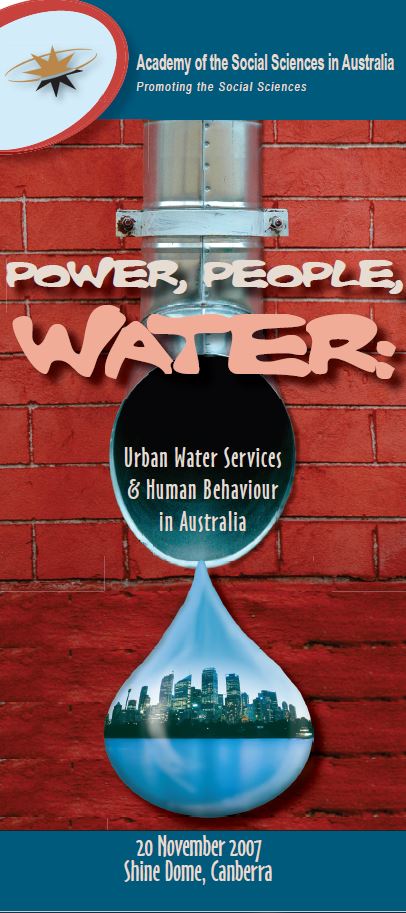Category
2007Urban water services and human behaviour in Australia
The situation that faced the urban centres of the Australian colonies in the mid-nineteenth century was one of unhealthy centres with poor and unreliable supplies of potable water, insanitary conditions that threatened health, difficulties in dealing with disposal of human and other wastes of urbanisation, poor drainage of storm water, lack of adequate water supplies to fight fires. Our current situation is improved in some ways, but aggravated in others. The need to change some aspects of individual/household behaviour, coupled with policy driven incentives can provide solutions to current and future needs for potable and non-potable water.
The symposium is designed on the understanding that there are annual and seasonal variations in demand for and supply of water services in urban areas and is designed to seek a better understanding of the management of water services in times of scarcity as well as comparative water-affluence. The symposium also acknowledges that the changing nature of city form and structure inevitably influences and is influenced by the way water services are provided.
In addition, the symposium is cognizant of major environmental problems presently confronting Australian cities, including environmental stresses on ecosystems from which water is abstracted for delivery to them, the ecosystems into which waste waters are discharged and the contribution of stormwater runoff as a major source of pollution of the rivers, bays and harbours on which Australian cities are built.
The symposium will contribute to identifying opportunities to develop urban water systems that are environmentally sustainable, economically feasible, socially equitable and meet public health imperatives.
